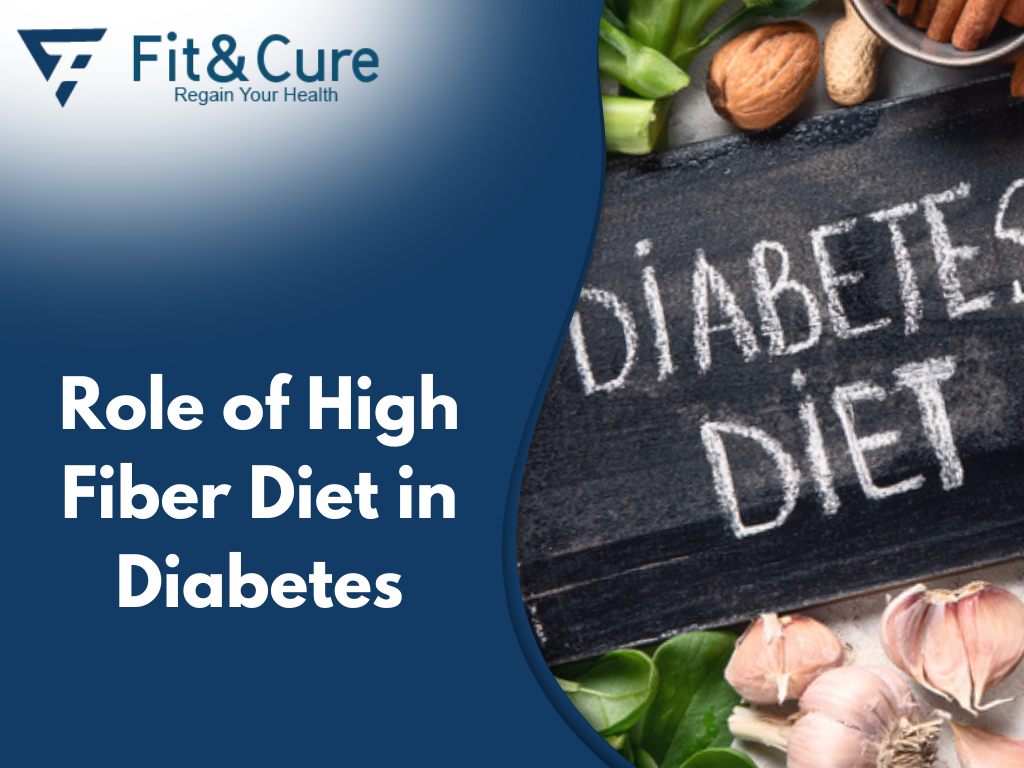
Old Age
About The Program
Old age is a phase of life when the importance of nutrition becomes even more critical. Good nutrition is vital for older adults because it helps maintain overall health and well-being. Here’s why nutrition matters so much in old age:
- Maintaining Health: Proper nutrition provides essential nutrients that the body needs to function well. It helps in preserving muscle mass, bone density, and a strong immune system, which are crucial as we age.
- Energy and Vitality: Adequate nutrition ensures a steady supply of energy, helping older individuals stay active and engaged in daily activities. It combats fatigue and supports physical endurance.
- Disease Prevention: A well-balanced diet lowers the risk of chronic diseases common in old age, such as heart disease, diabetes, and osteoporosis. It also supports cognitive health, reducing the risk of conditions like dementia.
- Wound Healing: Proper nutrition aids in wound healing, which can be slower in older adults. Essential nutrients like protein, vitamins, and minerals are necessary for the body's repair processes.
- Digestive Health: Fiber-rich foods promote regular bowel movements and prevent constipation, a common issue among older individuals.
- Improper nutrition and diet intake in old age can lead to several problems:
- Malnutrition: Inadequate nutrition can result in malnutrition, where the body doesn't get enough nutrients, leading to weakness, weight loss, and a compromised immune system.
- Muscle Loss: Insufficient protein intake can contribute to muscle loss and frailty, making daily activities challenging.
- Bone Health: Lack of calcium and vitamin D can weaken bones, increasing the risk of fractures.
- Cognitive Decline: Poor nutrition can impact brain health, potentially leading to memory problems and cognitive decline.
- Heart Disease and Diabetes: Unhealthy eating habits can raise the risk of heart disease and type 2 diabetes.
- In conclusion, good nutrition is crucial in old age as it supports overall health, provides energy, prevents diseases, and aids in healing. A balanced diet with essential nutrients is essential for older adults to enjoy a healthy and active life.

Osteoporosis
Osteoporosis is a medical condition where your bones become weak and brittle, making them more likely to break or fracture easily. It's common in older people.
- Causes of osteoporosis can include a lack of calcium and vitamin D in your diet, not getting enough exercise, smoking, excessive alcohol consumption, and certain medications. Hormonal changes in women after menopause can also contribute to it.
- Improving osteoporosis with proper nutrition is crucial. A diet rich in calcium, found in dairy products, leafy greens, and fortified foods, helps strengthen bones. Vitamin D helps the body absorb calcium and can be obtained through sunlight and certain foods like fatty fish and fortified cereals.
- Osteoporosis affects the whole body because broken bones can lead to reduced mobility and independence. Fractures, especially in the hip or spine, can be painful and limit daily activities. They can also result in complications like pneumonia and blood clots.
- In old age, osteoporosis is a significant concern as bone density naturally decreases with age. A balanced diet with adequate calcium and vitamin D, along with weight-bearing exercises like walking or dancing, can help prevent or manage osteoporosis and reduce the risk of fractures, ultimately improving quality of life.

Blood Pressure
Several factors can cause high blood pressure, also known as hypertension, including an unhealthy diet high in salt and saturated fats,
- Blood pressure is the force of blood pushing against the walls of your arteries as your heart pumps it throughout your body. It's measured in two numbers: systolic (when the heart beats) and diastolic (when the heart rests). Normal blood pressure is usually around 120/80 mm Hg.
- Proper nutrition and guidance play a crucial role in managing blood pressure. A diet rich in fruits, vegetables, whole grains, lean proteins, and low-fat dairy can help lower high blood pressure. Reducing salt intake is essential, along with limiting processed and fast foods.
- The side effects of high blood pressure on the whole body can be severe. It can lead to heart disease, stroke, kidney problems, vision loss, and damage to blood vessels. In old age, the risk of high blood pressure increases, which can further complicate existing health issues.
- Managing blood pressure through a healthy lifestyle, regular exercise, and dietary changes can help prevent or control hypertension in old age. It's important to work closely with a healthcare provider for guidance and medication if necessary to reduce the risk of serious complications.

Cholesterol Management
Cholesterol management is the process of keeping your cholesterol levels in a healthy range to reduce the risk of heart disease. Cholesterol is a fatty substance in your blood, and having too much of it can be harmful.
- High cholesterol can be caused by a diet rich in saturated and trans fats, lack of exercise, obesity, smoking, and genetics. It can lead to the buildup of plaque in your arteries, increasing the risk of heart attacks and strokes.
- Proper nutrition and guidance are key to managing cholesterol levels. Eating a diet low in saturated and trans fats, like those found in fried foods and red meat, can help. Instead, choose foods high in fiber, like fruits, vegetables, and whole grains. Regular exercise and maintaining a healthy weight also play a significant role in managing cholesterol.
- High cholesterol can affect the entire body, increasing the risk of heart disease, stroke, and other circulatory problems. In old age, managing cholesterol is crucial because the risk of heart-related issues rises with age. Older adults should pay extra attention to their diet and exercise habits, along with regular check-ups and medication if needed, to maintain heart health and overall well-being.

Brain Health
Several factors can influence brain health. These include aging, genetics, unhealthy diet, lack of physical activity, excessive stress, and certain medical conditions like high blood pressure or diabetes.
- Brain health refers to the overall well-being and optimal functioning of the brain. A healthy brain enables clear thinking, good memory, and emotional well-being.
- Proper nutrition and guidance are crucial for enhancing brain health. Eating a balanced diet rich in fruits, vegetables, whole grains, lean proteins, and healthy fats can provide essential nutrients that support brain function. Staying mentally and physically active, managing stress, getting enough sleep, and maintaining social connections can also promote brain health.
- Lifestyle coaches can be instrumental in helping patients improve brain health. They provide guidance on adopting healthier habits, creating personalized nutrition plans, and offering strategies to reduce stress and engage in brain-stimulating activities.
- The effects of poor brain health can impact the entire body, leading to cognitive decline, memory problems, mood disturbances, and reduced quality of life, especially in old age. Therefore, it's essential to prioritize brain health through lifestyle choices and seek guidance from healthcare professionals or coaches to maintain mental well-being as you age.
What we provide in Diet plans?
-
One on One consultation with
our expert nutritionist. -
Personalised Diets & Support
throughout the plan. -
Guidance on Lifestyle
Management. -
Support from the team
( 9 AM to 8 PM) on WhatsApp


Regain Your Health
Unlock the nutritional power with our experts for a healthier life
Posted onTrustindex verifies that the original source of the review is Google. I took Fit andCure’s nutritional program for my teenager son who’s very active in sports. We reside in UAE. Our nutritionalist - Arushi, customized a plan that really boosted his stamina. Her knowledge and attention to detail were outstanding, and she was always available to answer questions and offer encouragement. The results have been fantastic, and we couldn’t be happier with her guidance! I highly recommend Fit and Cure’s nutritional program for young athletes!Posted onTrustindex verifies that the original source of the review is Google. Arushi is a wonderful nutritionist and a god sent angel for my family and friends. She has a very holistic approach when it comes to nutrition. I love the way how she patiently explains about food and nutrition. She will listen to all your queries patiently with great attention to detail and often addressing questions before they were asked. Her meal plans are simple and doable from ingredients easily available in the kitchen. She goes above and beyond as a nutritionist which is very kind of her. She reaches out immediately to all my doubts or difficulties. She will be there 24*7. I will definitely be consulting her, multiple times. Thank you Arushi for taking care of us like a family member. Blessed to have met you.Posted onTrustindex verifies that the original source of the review is Google. As a 14-year-old badminton athlete, I reached out to fitandcure team for help with my liver health, and the results have been amazing! They tailored a plan that not only supported my liver but also boosted my energy levels for training and matches. The diet was easy to follow and worked perfectly with my intense athletic schedule. I’ve noticed a significant improvement in my performance and overall well-being. I highly recommend fitandcyre to young athletes looking for expert nutrition guidance!Posted onTrustindex verifies that the original source of the review is Google. I worked with fitandcure team to improve my liver health, and the results were incredible! They created a personalized plan focusing on liver-friendly foods that were easy to incorporate into my routine. Within weeks, I felt more energized and noticed improvements in my overall health. The ongoing support and expert guidance made the entire process simple and manageable. I highly recommend Arushi sharma for anyone looking to improve their liver health naturally!Posted onTrustindex verifies that the original source of the review is Google. I recently took a weight loss program with fitandcure, and I am beyond satisfied with the results! From day one, they took the time to understand my lifestyle, preferences, and goals, providing me with a customized meal plan that was easy to follow and tailored to my needs. What I loved most was how sustainable the plan was—no extreme dieting, just balanced nutrition that helped me lose weight while feeling energized. The weekly check-ins and constant support made all the difference, keeping me motivated and accountable. I highly recommend fitandcure team to anyone looking for a healthy and effective way to lose weight. It was a life-changing experience!Posted onTrustindex verifies that the original source of the review is Google. I took food plans for my mother who got a blood test done recently. A few parameters were not good like thyroid and HbA1c, so I consulted fitandcure and they made it so easy without medicine and now my mother feels good and follows a healthy lifestyle. Also, her deranged parameters are now normal.Posted onTrustindex verifies that the original source of the review is Google. For the last 1.5 years I have been facing acid reflux problems. I tried going to various doctors and had many medicines but nothing helped. I came across furniture who really changed the game. They really helped me cure my gut issues, improvement by reflux issues and made me understand the basic things which help me correct my condition. Today, I am free from medicines and can lead a healthy life by managing my diet and lifestyle. Thanks a lot fit&curePosted onTrustindex verifies that the original source of the review is Google. FitandCure have some amazing and knowledgeable experts and Ms. Arushi is fantastic! She created a personalized plan that fit my lifestyle perfectly, and the results have been amazing. Her knowledge and genuine care made the whole process enjoyable and easy to follow. I’m feeling healthier, more energized, and couldn’t be happier with the guidance I received. Highly recommend!Posted onTrustindex verifies that the original source of the review is Google. Arushi has been incredible throughout my father’s cancer journey. Her care didn’t stop with just treatment — she stayed supportive even after, always checking in. She truly listened and showed real empathy. My family couldn’t have asked for better support.Posted onTrustindex verifies that the original source of the review is Google. Fitandcure are really great professionals, they know their job very well. They understand the needs of the customers and guide them in the right way. The best part is that they connect with you like a family member. I am an athlete and they have been working with me for the last one month and I am getting really good results in my weight loss journey without going to the gym, apart from this they are also guiding me to get good results in my sports so that I can achieve my goal. I am happy with them.
Types of Consultation
Consultation With Fit&Cure
- 1. Follow-ups-in Our Groups
- 2. Consultation Per Week By Expert
- 3.Personalized Diet Plans Permonth
- 4.Constant 9 am - 9 pm WhatsApp support
Blogs
Manage PCOS Through Diet: Nutrition Tips for Better Health
Polycystic Ovary Syndrome (PCOS) is one of the most common hormonal disorders affecting women today — causing irregular periods, weight gain, acne, mood swings, and…
Top 5 Reasons Why You Should Consult a Dietician For Your Health
By FitandCure | Your Nutrition, Your Strength In a world filled with health fads, Instagram influencers, and DIY diet trends, it’s easy to feel overwhelmed.…
How Dietary Choices Influence Hormonal Imbalance and PCOS
By FitandCure | Women’s Health & Nutrition Experts Polycystic Ovary Syndrome (PCOS) is more than a hormonal disorder — it’s a lifestyle-linked condition. And while…
FAQs
Nutrition is the science behind food and how our bodies use it. It is essential for overall health, providing the energy and nutrients needed for growth, repair, and maintenance.
Start by incorporating a variety of fruits, vegetables, lean proteins, whole grains, and healthy fats into your meals. Limit processed foods, sugar, and excessive salt intake.
A balanced diet includes a mix of carbohydrates, proteins, fats, vitamins, and minerals in appropriate proportions to meet your body's needs. Including water in the right quantity is an equally important concept that needs to be considered when we talk about balanced nutrition.
The calorie needs differ from person to person based on various factors such as age, gender, activity level, and other factors. It is best to consult a nutritionist in order to understand the specific daily calorie requirement for an individual.
Macronutrients include carbohydrates, proteins, and fats, which provide energy (e.g., whole grains, pulses and legumes, nuts and seeds, etc.). Micronutrients are vitamins and minerals that support various bodily functions (various fruits and vegetables).
Complex carbohydrates (e.g., whole grains, and vegetables) provide sustained energy, while simple carbohydrates (e.g., sugar) offer quick energy but can lead to energy crashes.
No, not all fats are bad. Healthy fats, like those found in avocados, nuts, seeds, fish and olive oil, can be beneficial for your health when consumed in moderation.
Focus on creating a calorie deficit through a balanced diet and regular physical activity. Crash diet and extreme restrictions are not recommended. Such diets can be fatal to health.
Plant-based protein sources include beans, lentils, tofu, tempeh, nuts, seeds, and quinoa. Dairy alternatives, cereal–pulse combinations, and protein-rich vegetables such as spinach, potatoes, asparagus, broccoli, and sweet potatoes also contribute.
Pay attention to serving sizes, calories, macronutrients, and the ingredient list. Look for low-added sugar and prioritize whole, unprocessed foods.
Yes, nutrition plays a crucial role in managing conditions like diabetes, heart disease, and obesity. However, it is important to consult a healthcare professional or an expert dietitian for personalized advice.
Supplements should not replace a balanced diet. They may be necessary for specific nutrient deficiencies, but it's best to consult a healthcare provider before taking them.
Consider consulting a dietitian who can assess your individual needs and provide tailored guidance based on your goals and health status.
Plan meals, buy in bulk, opt for seasonal produce, and minimize food waste. Explore affordable protein sources like beans and legumes.
Our website offers a variety of nutritious recipes tailored to different dietary preferences and needs. Browse our recipe section for ideas.
Children need a balanced diet with plenty of fruits, vegetables, whole grains, lean proteins, and dairy or dairy alternatives. We need to limit the intake of sugar-based snacks, processed foods, and processed and preserved drinks.
Make healthy foods appealing, involve kids in meal planning and preparation, and be a role model by eating nutritious foods yourself.
Certain nutrients and dietary choices can influence hormone balance. Consult a healthcare professional or dietitian for personalized guidance.
Men should focus on a diet rich in fruits, vegetables, whole grains, lean proteins, and healthy fats to support overall health and prevent chronic conditions.
Yes, diet can play a role in fertility. Maintaining a healthy weight and consuming key nutrients like zinc and antioxidants may enhance fertility in men. Consult a healthcare professional or dietitian for personalized guidance.
Proper nutrition can help regulate menstrual cycles, manage PMS, and support hormonal balance during menstruation and during menopause. Consult a healthcare professional or dietitian for personalized guidance.
Yes, pregnant and lactating women require additional nutrients like folic acid, iron, and calcium. As it is a period of rapid growth and development, it is best to consult a healthcare provider or a dietitian for personalized nutrition advice.
Blogs
How to Make Fasting Food Healthier and More Nutritious
Fasting during religious festivals like Navratri is a time of spiritual and physical cleansing. However, many people end up consuming deep-fried, sugar-laden, and high-carb foods…
Role of High Fiber Diet in Diabetes
Dietary fiber is categorized under non-nutrient food but it is an essential part of a human diet. The body needs dietary fiber for many reasons…






